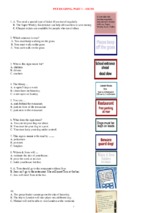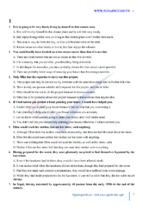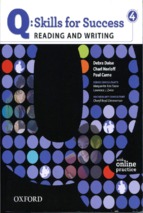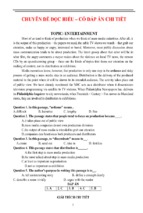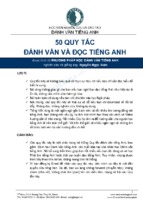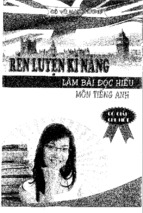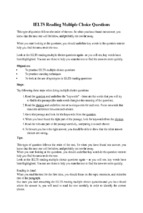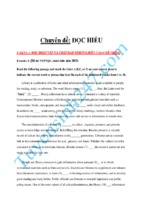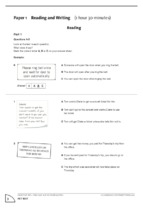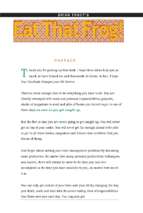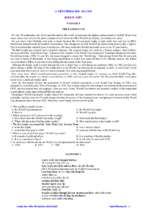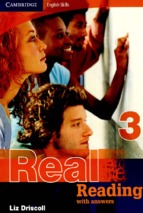OXFORD
CONTENTS
\.JNIVIiRSlTY PRESS
Great Clarendon Street, Oxford OX2 6DP
Oxford University Press is a department of the University ofOxford.
It furthers the University's objective ofexcellence in research, scholarship,
and education by pUblishing worldwide in
Oxford New York
Auckland Bangkok Buenos Aires Cape Town Chennai
Dar es Salaam Delhi Hong Kong Istanbul Karachi Kolkata
Kuala Lumpur Madrid Melbourne Mexico City Mumbai
Nairobi Sao Paulo Shanghai Taipei Tokyo Toronto
OXFORD and OXFORD ENGLISH are registered trade marks of
Oxford University Press in the UK and in certain other countries
Original edition copyright ~ Cecil Scott Forester 1935
First published in the USA by tittle, Brown and Company
This simplified edition © Oxford University Press z004
Database right Oxford University Press (maker)
2 4 6 8 10 9 7 5 3 1
No unauthorized photocopying
All rights reserved. No part ofthis publication may be reproduced,
stored in a retrieval system, or transmitted, in any fornl or by any means,
without the prior permission in writing of Oxford University Press,
or as expressly pennitted by law, or under terms agreed with the appropriate
reprographics rights organization. Enquiries concerning reproduction
outside the scope of the above should be sent to the ELT Rights Department,
Oxford University Press, at the ;;Iddress ;;Ibove
You must not circulate this book in any other binding or cover
and you must impose this same condition on any acquirer
Any websites referred to in this publication are in the public domain and
their addresses are provided by Oxford University Press for infomlation only.
Oxford University Press disclaims any responsibility for the content
STOR Y INTRODUCTION
1 The death of a brother
1
2 The African Queen goes down river
7
3 The argument
16
4 Riding the rapids
24
5 A night of love
31
6 The way to the lake
42
7 The end of the African Queen
55
8 Back to a wider world
65
74
GLOSSAR Y
ACTIVITIES:
Before Reading
77
ACTIVITIES:
While Reading
78
ACTIVITIES:
After Reading
81
ISBN 019423056 z
Printed in Spain by UnigrafS.L.
I
ABOUT THE AUTHOR
85
ABOUT BOOKWORMS
86
I
'I'I1I~ 1}I~1l'l'I1
Ol~ 1\ IUlO'l'lUm.
in the African forests, an English
missionary called Samuel Sayer and his sister Rose were saying
their evening prayers. For the last ten years they had lived here
in the German colony of Central Africa, close to the muddy
waters of the River Ulanga, and far from other white men,
trying to persuade the local people to accept Christianity. It
was thankless work, and every night and morning it was their
habit to pray, asking God for help in their difficult lives.
Rose looked worriedly at .her brother. She herself was ill
enough to be in bed, but it was clear to her that Samuel was
much worse. He was very weak, and when he knelt down to
pray, he seemed to have difficulty in getting up again. His
hands were trembling violently, and in the moment before she
closed her eyes to pray, Rose could see how thin those hands
were, with the bones showing through the skin.
The damp heat of the African forest seemed to get even
worse with the coming of the night, which closed in upon the
missionary and his sister while they prayed. Rose's hands,
which she was holding together, were wet with sweat, and she
could feel rivers of it running down under her whire cotton
dress as she knelt there.
'I knew I was right to stop wearing my corset!' she thought.
'Mother always said that every woman over the age of
IN A SMALL HOUSE
1
The African Queen
The death of a brother
fourteen should wear one. But that's impossible here! And
anyway, there's nobody to see me, except SamueL'
She realized she should be thinking about the prayer, so she
turned quickly towards her brother, making herself listen to
his weak voice.
'Help us in our work, God,' he was praying.
Rose knew that this work had come to an end, now that
she and Samuel were alone in the village. It was August 1914,
and war was just beginning in Europe. Yesterday the German
commander Von Hanneken and his soldiers had entered
the village. They had taken every single person away, except
the Englishman and his sister, to become parr of the great
German army. Now that Germany was preparing to fight
against England, and Central Africa was under German
control, Rose and her brother were surrounded
by enemies.
'What will our life here be like now?' wondered Rose.
'Where will we ger our food, oil, and matches from? How can
we contact the outside world?'
She noticed that Samuel's voice was getting stronger. His
eyes were shining as he looked upwards.
'Oh God,' he prayed, 'help men to see that war is not the
answer to their problems. Bring them, in the end, to a lasting
peace. And God, look kindly on our brave country, England.
Carry her safely through this most difficult time, and give her
victory over the godless ones who are responsible for this
disaster" As he finished his prayer, Samuel sounded almost
like a fighting man, and Rose had never admired her brother
more. Tears fell through her fingers as she covered her face
The German soldiers had taken all the villagers away.
2
3
The African Queen
The death ofa brother
with her hands, and bent her head. They knelt in silence for
a few seconds, and then rose to their feet.
'j shall go to bed now, sister,' said Samuel quietly.
in the quiet little house, it wasn't long before she stopped
feeling afraid, and started feeling angry.
'Why did Samuel die?' she asked herself. 'Because the
Germans broke his heart when they took all the natives away.
Even if they survive the fighting, they'll lose their Christianity
and go back to their old ways. That's what killed Samuel,
seeing ten years of his work destroyed in a single hour!'
Since Rose was a child, her parents had taught her to love
and admire her brother. When she was only a girl, he had
be~ome a missionary. She had been happy to become his
helper and companion, and travel with him to this most
distant and foreign corner of the world. Here she had lived
and worked with him, through good times and bad, trying to
learn the local languages, managing to cook meals with
whatever food was available, mending and making their
clothes, and visiting the villagers in their homes. Samuel had
been her whole world. It was not surprising that she hated the
Germans for causing his death.
And naturally, she could not see the other side of the
question. Commander Von Hanneken had the difficult job of
keeping Central Africa in German hands, although he knew
that the real war would be fought in Europe. He only had five
hundred white men in a colony of a million black people, of
'Very well, brother,' replied Rose. She went to her own
room. A little later, however, she went softly into his room
in the dark, to make sure his mosquito curtains were closed.
'Good night, sister,' said Samuel. His face was very white,
and he was shaking with fever.
Rose went back to her room, and lay on the bed, sweating
in the terrible heat. Outside she could hear the noises of the
African night. Soon after midnight she fell asleep, and woke
up some hours later. She thought she heard Samuel calling,
and hurried to his room.
But if Samuel had called to her, he was not conscious
enough to speak clearly now. She could not understand what
he was trying to say. He seemed to be explaining, perhaps to
a higher being, the reasons why he had failed in Africa. He
repeated the same words again and again.
'I'm sorry,' he said. 'It was the Germans, the Germans.'
He died very soon after that, while Rose cried at his
bedside. After a time, she dried her eyes and slowly got to her
feet. The morning sun was beating down on the forest, and
she was all alone in the world.
'What will happen to me now?' she thought.
whom not more than a few thousand even knew they were
Het fear did not last long, however. Rose's thirty-thtee
years of life, including ten in Central Africa, had made het
quite self-confident. She knew that she was able to solve most
problems on her own. And as she stood beside the dead man
under German control. So it was only natural that he should
use every man, woman and child that he could find.
Rose remembered that she had always disliked the
Germans. She remembered how unpleasantly she and Samuel
4
5
The African Queen
had been quesrioned, and laughed ar, when rhey firsr arrived
in rhe colony as missionaries. She discovered rhar she hared
2
the German character, their ideas, their laws, everything
TilE ilJ"lUCillV fUJEEN
abour rhem, in facr. And now rhar her dead brorher had , in
his prayers, asked God ro defeat them and give vierory ro rhe
English, she felt a strong wish ro fighr rhe Germans herself.
fmES nOWN RIVEIl
'But how can I?' she thought. 'Here I am, alone in the
Central African forest, alone with a dead man. There's no
possible chance of my doing anything at all.'
Ir was ar rhis moment thar Rose looked our of rhe window
and saw Opportunity coming towards the house. She did
not recognize it as Opponunity. She had no idea that the man
who had appeared there would help her to fight for England's
vicrory. All she realized at rhe time was rhar ir was Allnutt,
rhe London-born mechanic who worked for a Belgian goldmining company three hundred kilometres up the river.
Samuel had disliked the man and his rough, wild way of
living, and Rose did not know him ar all well. Bur it was an
English face, and a friendly one, and the sighr of it made her
realize how lonely she was. So she hurried outside, and waved
a welcome to Allnutt.
6
ALLNUTT APPEARED VERY WORRIED,
looking around fearfully
all the time as he came towards her.
'Where's everybody, Miss?' he asked.
'They've all gone,' said Rose.
'Do you need any help? Where's your brother"
'He - he's inside. He's dead,' said Rose. Her lips began to
rremble, but she did nor allow herself to show weakness. She
shut her mouth inro its usual hard line.
'Dead, is he' That's bad, Miss,' said Allnutt. He was not
a brave man, and to him rhe missionary's dearh was less
important than the very real danger he now found himself in.
'Have rhe Germans been here, Miss?' he asked.
'Yes,' said Rose. 'Look.'
He stared at the empty, silent village. 'Awful, ain't it, Miss?
It was like rhis up at the gold mine - all the natives gone, and
the Belgians too. What the Germans have done with them,
God only knows. I wouldn't like to be a prisoner of that officer
with a glass eye - Von Hanneken's his name, ain'r ir' But he
hasn'r gor rhe boar, anyway. Nor what's in it.'
'The boat" said Rose sharply.
'Yes, Miss. The African Queen. I was bringing back food
and drink and explosives from Limbasi for the Belgians. Bur
there's no one at the mine to take it. So it's still in the boat.'
7
The African Queen
The African Queen goes down river
They were inside the house now, and Allnutt, realizing that
death was present, took off his sun har.
'I'll bury your brother, Miss,' he said. The offer was rather
sudden, but he and Rose both knew that in the African hear a
dead man must be buried in six hours. Also, Allnutt was in a
'Yes, that would be best,' agreed Rose.
'Could you hold the tiller for a moment, Miss" he asked.
Rose silently took hold of the tiller; it was so hot that it
seemed to burn her hand. She began to enjoy feeling the boat
move obediently as she put the tiller to one side or another,
while Allnutt put more wood on the fire, and kept a careful
eye on the river ahead. Plants grew thickly on the muddy bed
hurry to get away in case the Germans returned.
'Thank you. I'll say the prayers over his body,' Rose said,
keeping her voice from trembling.
So together they carried Samuel outside, and Allnutt
started digging. And when it was all over, he said, 'Don't cry,
Miss. Come down to the boar. Let's get away ftom here.'
Rose put some things in a bag, and they followed the muddy
path through the forest down to rhe rushing brown river.
Allnutt helped Rose to climb into the boat; she sat down and
looked around. The boat certainly did not look like an African
queen; in fact, it was an ugly old steamboat, ten metres long,
with a flat bottom, and in very bad condition.
But Allnutt seemed to know exactly how to manage it. He
put wood on the fire under the boiler, and soon the engine
began ro make noises and send out little clouds of steam
from every corner. Allnutt threw
1110rc
wood on the fire, and
then ran forward to the front of the boat to pull up the
anchor. Then he rushed back, with the sweat running off
him in rivers, put his hand on the tiller, and steered rhe boat
out into the middle of the fast-flowing Ulanga.
'I thought, Miss,' he said, 'that we'd better find somewhere
quiet behind one of these small islands, where we can't be
seen. Then we can talk about what ro do.'
•
AI/milt kept a careful eye 011 the river ahead.
9
The African Queen
The African Queen goes down river
of this part of the tiver, and it was often difficult to find
enough clear water to take a boat safely through.
'Over this way, Miss!' he called. 'That's it!'
The boat moved into a narrow channel between an island
and the tiver's edge, where the light was all green from the
leaves meeting overhead. Allnutt sropped the engine and
threw out the anchor with a great crash. As the noise died
away, a heavy silence seemed to close in on them.
Rose looked ar Allnutt. As usual, a cigarette hung from his
lower lip. He still seemed restless and jumpy, as he waved
away the Aies, but he was more in control of his fear now.
'Well, here we are, Miss,' he said brightly. 'Safe for the
moment. The question is, what next' We've got lots of food.
Two thousand cigarettes. Twenty-four bottles of gin. We've
even got boxes of explosives! We can stay here for months if
we want to. But do we want to? How long do you think this
The Konigin Luise was the German police gunboat on
Lake Wittelsbach. Its speed and its heavy gun prevented any
war'll go on, Miss?'
Rose was so surprised she could not speak. He was clearly
suggesting they should stay in this hiding-place until the war
was over. Did he have no wish to fight for his country?
'The trouble is,' continued Allnutt, 'we don't know which
way help'll come. We don't want to get trapped here, with
Von Hanneken between us and the British army. They could
attack the colony from the north, south Ot east, though they'll
find it hard getting through the forest. One thing's certairthey won't come from the west, through the Belgian Congo.
The only way from there is across the lake. And nothing's
going to cross the lake while the Luise's there.'
10
unack on German Central Africa frolll the west.
'We must do somerhing for England,' Rose said suddenly.
'Blimey!' said Allnutt. His plan had been to pur rhe greatest
possible distance between himself and the fighting, and not
become involved in any way. 'Blimey!' he repeated, turning
her words over in his head. The idea of 'doing something for
England' was exciting, certainly. Bur he soon decided against
it - he was a man of machinery, not of ideas.
However, hedid nor want to annoy Rose. 'Well, Miss,' he
said, 'if there was anything we could do, I'd be the first to
ngree: He was SlIre there would be nothing she could suggest.
And at first he seemed to be right. Rose was trying to
remember what little she knew abour war. What could twO
I eople with a boat full of explosives do to the enemy
surrounding them' And suddenly she saw the light.
'Allnutt,' she said, 'this river funs into the lake, doesn't it?'
The question worried him. 'Well, Miss, it does. But you
needn't think about going to the lake in this old boat, because
we can't, anJ that's cenain. Take my word for it.'
'Why can't we?'
'Rapids, Miss. Rocks and waterfalls and cliffs and white
water everywhere. You haven't been there. I have. There's' a
hundred and fifty kilometres of rapids down that river.'
'That man Spengler, who made the first map of Central
Africa, managed to get to the lake from here.'
'Yes, Miss. In a light little canoe, he was. And he had a lot
II
The African Queen
The African Queen goes down river
of native boatmen to help him. The African Queen's much
about dying, and she knew perfectly well what she wanted to
too wide and heavy to get thtough those tapids.'
torpedo. But she realized she would have to be clever if she
All her life Rose had been used to following the advice of
wanted to persuade Allnutt to agree.
,
another person - her farher, mother, or btother. Now, for the
'I wasn't thinking we'd be in the boat,' she said. 'We could
first time in her life, she was thinking for herself, and she did
get everything ready, then just point the boat towards the
not find it easy, especially when it involved judging a man's
ship, and jump out at the last minute.'
character and honesty. She stared at Allnutt's face rhtough
Allnutt tried hard not to laugh. None of this woman's
the cloud of flies, and Allnutt, noticing her look, moved about
Illad ideas could possibly work, but he did not want to argue,
uncomfortably. She rhought of rhe grear Brirish Empire with
so it seemed best to agree. 'Thar's possible,' he said seriously.
its long history and its distant colonies, its beautiful warships
'Good,' said Rose. 'We'll go down to the lake and torpedo
and brave soldiers - all now in danger. She rhought of her
dead btother, a man of peace, who had hated any kind of
fighting. But war had come at last, and had killed him with
its coming. As Rose sat sweating in rhe African Queen, she
knew she would do everything she could to take revenge for
Samuel's death, and help her country to victory.
'Allnutt,' she said, 'wirh all these explosives in rhe boat,
could you make a torpedo?'
'Could I make a torpedo? Why not ask me to build you a
warship as well, while you're about it! You see, Miss . .. ' And
•
Allnutt explained in great detail why it was impossible.
Bur Rose was only half listening. When at lasr he finished,
she said, 'But I think you could put some explosives in some
kind of container, at the ftont of the boat, and then if we ran
the boar against the side of a ship, we'd desttoy the ship!'
• 'But supposing we did rhar, what would happen to us'
We'd be dead too! And what would we want to torpedo?'
Rose was thinking unusually fasr. She was nor worried
12
the Luise.'
'Don't be silly, Miss! We can't get down the river. I've told
you that!'
'Spengler did.'
'In a canoe, Miss, as I said, and with-'
'That just shows we can, too.'
Allnutt decided ro stop arguing. She'd think differently
when she saw the rapids, he thought. 'Have it your own way
then, Miss,' he said. 'Only don't blame me. That's all.'
'We must start at once,' said Rose.
'What, now, Miss? There's only two hours of daylight
left! '
'We can go a long way in two hours,' she replied, shutting
her mourh tight.
So Allnutt starred up the old engine, Rose rook the tiller,
and the African Queen moved slowly and noisily down river.
By the time darkness was falling, Rose was feeling pleased
with herself for learning how to manage the boat so quickly.
13
•
i
The African Queen
The African Queen goes down river
Allnurr found a quier place ro spend rhe nighr, where leafy
srop rhe narives drinking rheir home-made beer. Drink made
men mad. Drink desrroyed rheir bodies. Drink rurned people
overhanging branches hid rhe African Queen from sighr. He
shut off the engine and threw Ollt the anchor.
'Blimey!' he said, sitting down at last. 'Hot work, ain't it,
Miss! I could do wirh a drink.' He rook a barrie of gin our of
one of the boxes. 'Going to have one, Miss?' he asked.
'No,' said Rose sharply. Her brorher had spoken so ofren
abour rhe rerrible effecrs of srrong drink, bur he had failed ro
away from God and pur rhem on rhe road ro hell.
Bur when Allnurr had drunk some gin, he did nor seem ro
go mad or die. Insread, he said rhe sweeresr words rhar Rose
auld wish ro hear: 'Whar abour a cup of rea, Miss"
Tea! Hear and rhirsr and riredness and exciremenr had
done rheir worsr for Rose. For years she and Samuel had
each drunk rwelve cups of rea every day, and roday she'd had
none. Tea! She wanred ro drink ren, rwenry, rhirry cups of ir'
'I'd like a cup of rea,' she said polirely.
And afrer rheir rea, which made Rose feel warm rowards
the whole world, excepr the Germans, Allnutt said, hesitaring
a little, 'I'd - I'd like a bath before bedtime.'
'So would I.'
'I'll jump inro rhe water at one end of the boat, and you can
do the same at rhe orher,' he suggested. 'Then, if we don't
look, it won't matter.'
So Rose, instead of turning away from this idea in horror,
found herself bathing naked in rhe river while a man did the
same thing only a few merres away. But ir did nor seem to
marrer, and rhe water felt wonderfully coolon her hot skin.
The forest was quiet now that ir was dark, and all around her
was the sound of the rushing waters of the great river.
When they were borh dressed again, Allnurr made a bed
for Rose with some old blankets, while he lay down nearby.
The flies were biting, and Rose's head was full of rhoughts
The waler felt wonderfid/y coolon Rose's hot skin.
14
crowding in. Bur soon, completely exhausted, she slept.
15
The argument
:1
'l'IU
lUUiIJj}II~N'1'
most of the night. It was the tain
which woke her, the rain and the thunder and lightning. All
round her was noise, with the rain beating down on the boat
and the thunder crashing overhead. Rose felt the warm rain
ROSE MANAGED TO SLEEP
on her face, and realized she was wet to the skin.
Something moved nearby, and the lightning showed
Allnutt sitting up. He looked extremely miserable.
'Blimey!' he said. 'Wet, ain't it?' For a moment Rose felt
she wanted to put an ann round his shoulders and hold him
like a child. She blushed secretly when she realized this,
because Allnutt was no more a child than she was.
Instead, she sat up and said, 'What can we do?'
'Nothing, Miss,' he replied unhappily. 'Just wait.'
Then the storm passed as quickly as it had come. The
wind died away, the sky suddenly became light, and steam
rose from everything touched by the morning sun.
'What should we do before we move on" asked Rose.
'We've got no wood. And we'll have to pump out the boat
- it's full of rainwater.'
'Show me how to do that. You go and get the wood.'
So Rose was introduced to the hand pump, a tired old
piece of machinery, which ofren trapped her fingers painfully
and sometimes refused to work at all. In the end she came to
16
hate that pump more than anyrhing she had ever hated
before. Finally, however, the boat was cleared of water, and
then she helped Allnutt bring the wood onto the boat.
'We'd better start now,' said Rose.
'Breakfast?' suggested Allnutt, and then, cleverly, 'Tea?'
'We'll have that l0>ile we're going along,' said Rose.
All her life Rose had been happy to let her brother Samuel
order her about. Now that he was dead, however, she had
discovered that she was good at deciding what to do. She
desperately wanted her plan to succeed, and she would not
allow anything to delay or prevent it.
Allnutt did not mind Rose giving orders. The woman was
a bit mad, he thought, but at present it would be more trouble
to argue with her than to obey her. And Allnutt always
avoided trouble if he could.
He started up the engine, and the boat steamed noisily
back into the main channel. Soon they were travelling down
river again, with Rose at the tiller. Allnutt brought some tea
and tinned meat to her as she sat at the back of the boat, then
he returned to keep a watchful eye on the engine.
It was hot for Rose as the sun climbed higher, but even
hotter for Allnutt, working next to the heat of the fire and the
boiler. She felt sorry for him, and understood why he kept
drinking river water, although she knew how unhealthy it
was. In fact, Allnutt was used to impossible temperatures. He
had worked in ships' engine rooms where the air was far
hotter than on the River Ulanga, and he was even enjoying his
endless battle to keep the African Queen's engine going.
17
The argwuellt
The African Queen
Soon they were in a wider part of the river, a kilometre
'lhour; that in itself was enough to keep anyone happy. And
wide. Allnutt did not like the open water; he was afraid Von
Hanneken's men were watching the river and would see the
African Queen. Rose knew whar was worrying him, but she
had no fear herself. She did not believe anyone, not even
Von Hanneken, could stop her now. But in order to calm
Allnutt, she steered the boat across rhe river to the opposire
bank, where she could see a long narrow island. She already
knew enough about the river to know that behind the island
would be the entrance to many smaller channels, where they
could travel hidden safely from any watching eyes.
The boat moved out of the sunlight into the quiet water of
the narrow channels. These backwarers were peaceful places,
lh· river, wide, changeable, always different, hrought nc\v
1 (irCIlli.:llf eVCfY
\.\I
day. Perhaps those few days of happiness
're Rose's paylncnf for thirty-three years of misery.
One evening, however, Allnutt was silent and appeared
11I1I1Oycd.
Rose noriced rhis, and looked sharply ar him once
01' lwice. There \Vas no friendly feeling between them as they
,lr.lIlk their tea. And when the tea was finished, Allnutt took
Olll
his gin bottle and had a drink, and then another, still
~d 'IH :1I1d angry. He drank again, and the drink seemed to
where even the birds and insects seemed to be silent in the
steaming heat. There were only rhe tall trees along the banks,
and the thick weeds waving in the dark water.
All the days they spent going down river to the rapids
were like that first day. Sometimes the boat could not get
through the channel they had chosen, so they had to go back
and find another one. One day there were so many weeds in
the water that the propeller would not turn at all, and Allnutt
had to swim half-naked under the boat and cut the plants
away from it. Occasionally there were storms, which caused
Rose to work long and painfully with the hated hand pump.
But none of this made Rose unhappy. She was really alive
now, for rhe first rime. Life with Samuel had been one of
prayer and dull routine, and she had never realized what an
adventurous place Africa could be. She had her plan to think
""11ult had a drillk, "ltd Ihel1 011ullu'r, slill silent and allgry.
18
19
The African Queen
The argument
make him angrier. Rose was worried. She knew she must do
somerhing, because this silent drinking could only lead to
trouble.
'What's the matter, Allnutt" she asked gently.
Allnutt drank again, and stared down at his feer. Rose
came nearer to him. 'Tell me,' she said.
'We ain't going futther down the bloody river,' he said at
last. 'We've gone far enough.'
uark. And I ain't going down the rapids, not in the dark, and
not in the light, either. It's bloody crazy coming so near ro
Shona anyway. They could find us, even here. Tomorrow I'm
lIoing back up river to that backwater we were in yesterday.
'Not going any further!' said Rose, surprised. 'But of
course we must go on!'
'There's no bloody "of course" about it,' said Allnutt.
'I can't think what's the matter,' said Rose.
r
'The river's the marter. And Shona.'
'Shona!' repeated Rose. Now she undersrood his fears.
'If we go on ronight, we'll be in the rapids tomortow. And
before we get to the rapids, we have to go past Shona.'
'But nothing's going to happen to us at Shona.'
'Ain't it? Ain't it? How do you know? If there's anywhere
on this river the Germans are watching, it'll be Shona. That's
where the rpad from the south crosses the river. And I know
what the river's like there -I've been there, and you haven't.
No backwaters, no islands, nowhere to hide.'
'But they won't be able to srop us.'
'Won't be able ! Don't be silly, Miss. They'll have guns,
and they'll get a good view of us. They'll shoot, all right.'
'Let's go past at night, then.'
That's the safest place for us.'
Rose was white with angry disappointment. She tried to
"tay calm, ro explain, to persuade, bur Allnutt refused to
llswer. Only when, in the growing darkness, Rose called him
coward - the first time she had used that word to anyone(lld he reply.
'Coward yourself,' he said. 'You ain't a lady, Miss. That's
what my poor old morher would say ro you, if she was alive.
If my mother could hear you-'
When a man who is drinking gin starts talking about his
mother, he is past all argument, as Rose began to realize. She
was alone in a boat with a man who was drunk - a most
frightening situation. She stayed silent, ready ro fight for her
I f or her virginity, and quite certain that one or the other
'We can't do that - the rapids start just below Shona. If we
went past in the dark, we'd have ro go down rhe rapids in the
20
J
I
would be in danger before the morning.
But Allnutt, when drunk, was neither violent nor interested
In women. Mentioning his mother had brought tears ro his
y 's. He talked loudly and confusedly about the women he
had known and his boyhood friends in London, and made a
noisy attempt to sing a song. Finally, through the darkness,
Rose heard the sound of a body falling heavily onto the floor
nf dIe boat, and she knew he must be asleep.
Rose, however, did not close her eyes all night. At that
moment she had no hope left, and she hated Allnutt for
21
The African Queen
The argument
destroying her plans. Although she despetately wanted to
Rose went on calmly with her sewing, while Allnutt spent
carry all, she knew she could not manage the African Queen
some time repairing the boiler and the engine. But when he
alone. She decided, as the hollts slowly passed, ro make
had washed all the oil off himself, thete was nothing left to
Allnutt pay for his cowardliness. Her mouth became a rhin
do. And all round him was the silence of the river, which in
line. She would make life hell fot him! Now thar Samuel was
itself was enough to make him feel lonely and uncertain.
dead, she had no lise for kindness or goodness or any other
Chrisrian feelings.
The next morning Allnurt woke with the worst h(,;ld~lche
he had ever had. The light hurr his eyes, and he could only
sit there, holding his head in his hands. Rose, meanwhile,
was emptying all the gin bottles ovet the side of rhe hoar.
Then, without even looking at him, she made her.. . clr ",ollle
breakfast. Next, she washed some clothes and hung thclll up
to dry, still without a word to Allnutt. This was. in bCI-, the
beginning of the grear silence.
Rose had been able ro think of no better way of [ll:lking
Allnutt's life hell- she did nOt realize it was the mo" crfective
way. By the end of the day Allnutt, who loved talk ill!" was
desperate for some conversation.
'Blimcy, ain't it hot?' he said, coming to sit heside Rose.
She said nothing. She was very busy, doing some
"'CWill)!..
'Ain't you going to answer me, Miss?' he asked. Till ...orry
abollt last night. It was bad to drink so Illuch, I know. There!
I don't mind saying it, l'v1.iss. And you've thrown
aW;lY I he
gin,
so I've learnt Illy lesson.'
But when there was still no answer, Allnutt
hCl:.lIlIC
.lllgry.
'Have it your own bloody way, then!' he said, gcrrillg tip and
going to the otber end of the boat.
Rose /Vas emptying all the gill bot.tfes ooer the side of the boat.
72
\
23
;
Riding the rapids
4
intelligent enough to win the battle
against Rose. He was not used to doing any continuous
thinking, so he was helpless in a situation where there was
nothing to do except think. In the end, it was the noise of the
river endlessly beating against the riverbank which defeated
him.
ALLNUTT WAS NOT
sleeping, which was quite new for Allnutt and worried him
a great deal. So, in the morning, when he thought of the
awfulness of rhe long day ahead, he said, 'Tell me what you
want to do, Miss. Just tell me, and I'll do it.'
'I want to go on down the river,' said Rose.
Once more Allnutt's head was full of terrible pictures of
guns and rocks and rapids, of death by drowning, of capture
by the Germans. He was frightened, but he felt he could nor
stay a minute longer in this backwater.
'All right, Miss,' he said. 'Come on.'
Some time later the African Queen steamed out of the
backwater into the main river. Rose sar holding the tiller,
completely happy. They were on their way again, to help
England, and rhe thought of a lirtle danger could only add to
her happiness.
He had tried several times to talk ro Rose, and only once
had he managed to make her say anything.
'I hate you,' she had said then. 'You're a coward and you
tell lies, and! won't ever speak to you again.'
She was surprised to see how much he disliked her silence.
She had only wanted revenge, but now she began to realize
how much power she had over him, and hoped that, in the
end, she could persuade him to obey her.
Alinutr was also reconsidering the siruation. At first he had
thoughr Rose was angry with him for being drunk. Then he
realized her anger was at his refusal to go on down river. But
her plan still seemed so wild and crazy that he made himself
live with Rose's silence for another twenty-four hours.
And that was a very long day and night. Allnutt had grown
up in a busy city, and all his life he had worked in crowded
ships and noisy engine rooms. Silence was one of the things
he could not live with. That night it even prevented him from
'That's the hill Shona stands on,' Allnutt called to Rose,
pointing to the cliffs on their right. They had reached Shona
much faster than he had expected. He looked fearfully up ar
rhe steep riverbank for any sign of soldiers or guns. Then he
returned to his fire, feverishly putting on more wood, to
make the African Queen reach its top speed.
The natives on the hill saw rhe boat coming, and ran to tell
the German officer in the village. He hurried to the edge of the
cliffs, and recognized the African Queen at once. Von
Hanneken had given special orders to capture rhe boat.
'! suppose the English missionaries and rhe mechanic have
got tired of hiding in the backwaters,' the officer thought.
'They're coming to surrender. Von Hanneken will be pleased!'
24
25
1
The African Queen
Riding the rapids
But his smile soon disappeared when he realized the
African Queen was not coming in to surrender at all, but was
going on down the river at full speed. He shouted angrily for
her concentration to keep the boat in the middle of the river
now, in order to take the next bend. A moment later the
whole boat rang like a bell, and two small holes appeared
high up on one side. As the boat went round the bend and left
Shona behind, Allnutt stood up and shouted angrily at the
the guards, and the natives came running with their guns. He
ordered them to shoot, but they were not well trained, and
none of the shots appeared to reach the boar.
'Again!' he shouted angrily. But the African Queen still
seemed to be untouched, and was steaming fast away from
Shona. He took a gun from a native, and tried to hit the boat
himself. But now the distance was a thousand metres, and the
unseen enemy.
'Take care of the engine!' screamed Rose.
They were flying along now, because the river had become
narrower and faster. Here and there were the alarming signs
of rocks hidden under the water. Rose never took her eyes off
the river; it was safe to go where the water was smooth, but
sun was in his eyes.
There was nothing more he could do. He watched
helplessly, as the African Queen moved out of sight round the
bend in the river. 'The mad English will probably die in the
rapids,' he thought, 'and the boat will be destroyed on the
rocks! How angry Von Hanneken will he when he hears!
Maybe 1won't tell him - he's certain to say it was my fault.'
she had to watch out for any movement in the water and
decide in a second the best way to steer the boat past.
Round another bend they went, faster still. They could see
rocks in the channel now, with angry white water rushing
C> C> C>
Meanwhile, as the African Quee" steamed past Shona, Rose
kept the boat as close to the further bank as she could. She
looked across the wide river and up at the red-walled village
at the top of the cliffs. It was too far to see clearly, but she
could see no movement, and nothing had happened so far.
Suddenly there was a strange noise in the air, like insects
o
round them, coming frighteningly close. Rose saw a channel
wide enough for the boat, and rook ir. Ahead was a long
green hill of rushing water, at the end of which she could just
see the top of a dangerous black rock above the water - it
would cut the whole bottom out of the boat if they hit it. She
kept the boat straight, and rhen at the last moment pushed the
tiller hard to one side. The engine did its work, and the kick
of the propeller forced the boat through the water, just
missing the rock
by centimetres.
in a great hurry, and then the bang of the guns. The sound
echoed back from cliff to cliff.
'They've got us!' cried Allnutt, jumping up, his face white
with excitement. Rose did not say anything - she needed all
The sound of fast-flowing water, echoing back from the
cliffs, frightened Allnutt terribly, but he had no time to look
about him. He knew, even better than Rose, thar their lives
depended on his keeping the engine going, so he bent to his
26
27
The African Queen
Riding the rapids
work with feat in his heart. For the first time since he left
school, he was saying his prayers.
It was only a few seconds before they teached the next
rapid, with its ugly rocks, white waves, and hills of green
water. Rose rode it like a queen of the sea. She had never
enjoyed anything so much before. She was filled with the
wild excitement that comes in battle, as her quick eye and
lightning thought and strong hand on the tiller took the
African Queen past danger after danget ro safe water beyond.
A moment later they rook another bend in the river and
found themselves in the worst rapid so far. While Rose was
picking a ch;nnel through the rocks, she noticed that Allnutt
was waving at her. In the noise of the crashing water, he
could not make his voice reach her. He held up a piece of
wood and pointed ro it. She understood. It was a warning
that they must get more wood from the riverbank.
Rose looked desperately into rhe distance. Luckily, she
soon saw what she wanted. Ahead, a row of sharp-looking
rocks ran almost across the river, broken only in the centre,
where a wall of green water had built up. Below these rocks
was clear water. She aimed the African Queen at the gap in
the rocks. The old boat crashed into the wall of water,
climbed up it,. then shot down the other side into the clear
water beyond. At once Rose pulled on the tiller as fast as she
could, and the boat came round, then shot forward again.
'StOP the engine!' Rose screamed.
Rose rode the rapids like a queen of the sea.
Allnutt blindly obeyed. The boat turned, and came up
gently and safely against the riverbank.
78
29
The African Queen
'Blimeyl' said Allnutt. He and Rose looked at each other.
They had escaped from the Germans, and now they had
found the one bit of peaceful water in the rapids. It was
unbelievable.
The place whete they found themselves was cool and
pleasant. For once they were away from the damp African
heat, and there were no insects. Allnurt climbed on to the
riverbank to collect the wood he needed, while Rose pumped
out the boat. Then they sat down comfottably together, to eat
a large supper and drink several cups of strong, sweet tea.
Freedom, an open-air life, and a taste of success had
changed Rose wonderfully. The last ten days had taught her
a great deal about her own character and Allnutt's. She had
learnt to make plans, give orders, and work as hard as a
man. Even her body had now filled out and she looked almost
beautiful - quite different from the thin, dried-up woman
Samuel had known.
By the time Rose and Allnutt had finished their supper, the
excitement of the day was beginning to take effect, and their
tired ears no longer noticed rhe crashing noise of the water all
around them. They smiled happily and proudly at each other,
before they lay down to sleep in their separate places. Allnutt
was delighted he had survived rhe day, and Rose felt she had
nothing more to worry about. either of them had any idea
how much danger was still to come.
30
5
1t. Nmll'l' Ol~ U)vI~
next morning, that rhey had had
enough adventures. Allnutt looked at the rushing waterfall
behind them, and then at the dangerous rapids ahead, and he
was frightened. It was easy to imagine the boat broken to
pieces on the rocks, with Rose and himself drowning in rhe
I
THEY ALMOST FELT,
angry water.
But he felt a little better when he realized there was nothing
to do except go on. If they stayed where they were, they
would die of hunger in the end. The only possible way out lay
down the river. So Allnutt pur more wood on the fire, heated
the boiler and started the engine. Rose took the tiller, and the
old boat moved out of its quiet resting-place into the main
channel. The next moment it was flying at top speed down
the river, and the madness of the day had begun.
Rose seemed to be able to think like lightning, and took the
African Queen through the rocks and the white water like a
trained boatman. Later, when they had come to the end of
their journey, she found she could not remember the details
of that second day among the rapids with half the clearness
of the first. She could see every rock, every bend of her firsr
rapid again, just by closing her eyes. But the second day
became confused with the third, and the fourth; by then she
had got used to the noise and excitement and danger.
31
I
The African Queen
A night of love
But the enjoyment of it all remained. She loved it when the
African Queen hit the waves of the rapids with a great crash.
And the best feeling of all was when the boat teached the top
of one of those long steep hills of green water, and went
rushing down with danger on each side and possible death
a misty blue. Sunlight gave colour to the dancing water. The
noise of the waterfall was not deafening; it sounded like
music. There was no dust; there were no flies. It was no
hotter than an English summer day.
Rose stood by the tiller and drank in the sweet loveliness
of it all. There was further happiness in remembering the
dangers they had just passed. She knew that, by bringing the
African Queen down those rapids, she had really achieved
something. For once in her life she could feel proud of herself,
and she was almost drunk with a feeling of power.
Allnutt came closer to her. 'Would you mind having a
look at my foot, Miss?' he asked. 'I got a splinter IJ1 It
yesterday, and I ain't sure if it's all come out.
'Of course,' said Rose.
He sat down next to her, and started taking off his shoe,
but Rose knelt in front of him and did it for him. She took his
rather nice-looking foot into her hands. She found where the
splinter had entered the foot, and pushed with her fingers to
make sure it had completely gone.
'No, there's nothing there now,' she said, and let his foot
go. It was the first time she had touched him since they had
left the village where Samuel was buried.
'Thank you, Miss,' said Allnutt. He stayed in his seat,
sta·ring-up at the flowers, while Rose remained on her knees
at his feet. 'Blimey, ain't it pretty!' he added. His voice was
only just loud enough for Rose to hear above the sound of
waiting for them at the bottom.
In the afternoon they came to a wider patt of the river,
where there were no mOte rapids, although the water still
flowed very fast. ow there was time for Rose to think and
to enjoy herself, while making sure the African Queen took
the bends safely. Even Allnutt did not feel he needed to
concentrate so hard on the engine, and he lifted his head.
Open-mouthed, he watched the steep cliffs rush by, with a
feeling of horror which was almost enjoyable.
Soon Rose started looking for a place where they could
drop anchor and spend the night. S:,e noticed that another
river joined the Ulanga a little way ahead, nOt in any normal
way, but by rushing down a cliff and falling twenty metres
into the water below. As she steered round this waterfall, she
suddenly saw a place where the water had eaten away at the
tocky riverbank. She gave a sign to Allnutt to go more slowly,
then backwards, and the African Queen came gently to a
stop undet the steep bank. Allnutt tied up the boat, while
Rose looked around her.
'How lovely!' she said. They had found what must be one
of the most beautiful corners of Africa. The cliffs here were
•
not so steep, and there were shelves in the rock where blue
and purple flowers were growing, making the whole rock face
32
J
the river.
Neither of them was thinking clearly. Both of them felt
33
The African Queen
A night of love
strangely happy with each other. But something seemed to
be missing. Rose watched Allnutt's face as he looked around
careless and untidy, unable to cook a meal or clean a room.
in wonderment. There was something 3nractive, almost
childlike about him, which made her feel she wanted to put
her arms around him. Both of them were breathing harder
than usual.
'That waterfall,' said Allnutt hesitatingly, 'reminds me--'
He never said what it reminded him of. He looked at Rose,
her sweet face close to him. He, too, was feeling wonderfully
alive. He put his hand on her neck, sunburnt and cool. Rose
caught at his hands, to hold them, not to push them away. He
knelt down and their bodies came together.
Rose realized he was kissing her. The blood was rushing
through her body and her head was swimming. His hands
pulled at her cIorhes, and she could not refuse him even if she
wanted to. She put her arms round his thin body and held him
to her, while rhey made love.
lr was not really surprising. Everything had pointed to ir
- their lonely siruarion, their closeness, the dangers they had
survived, their healthy life. Even their arguments had helped.
Rose was made for love; in the past she had been afraid of
love and avoided any thought of it, but it was impossible nor
to rhink of it, surrounded by the wild beauty of the Ulanga.
,•
These ladies explained to Rose that women had to spend all
their time clearing a path for men in life, but at the same time,
men were like gods, and musr be loved and obeyed.
She wanted to give, and to give again, and to go on givingthat was her character.
The most important thing, perhaps, was what she had been
taught about men all through her girlhood. Her mother, her
It was impossible not to think oflove,
aunts, all the married women she knew, thought men were
surrounded by the wild beauty of the Ulanga.
34
35
- Xem thêm -

